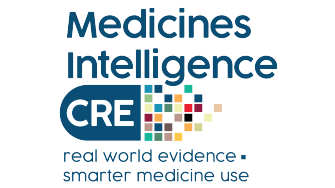
Juliana de Oliveira Costa
School of Population Health, UNSW Sydney
Learn more opens in a new windowProject Incubator Program

The prevalence of diabetes, cardiovascular disease and kidney disease is increasing in Australia, with these conditions often coexisting. Sodium-glucose cotransporter 2 inhibitors (SGLT2i) are medicines initially used for diabetes, now expanded for use as cardiometabolic medicines given their life-saving capacity to reduce disease progression, cardio-renal events and hospitalisation. However, less than half of eligible people are using SGLT2i in Australia possibly due to safety concerns in prescribing those medicines for specific population groups, under-appreciation of the cardio-renal benefits and lack of confidence in initiating those medicines within different specialties.
We will address the mismatch between a highly efficacious medicine class (SGLT2i) that is listed for public subsidy and their use in eligible populations of NSW. Our project will address prescribers’ and policymakers’ concerns related to SGLT2i use and generate evidence to support multi-disciplinary care of people with cardiometabolic conditions, ultimately leading to reduced disease progression, and improved health outcomes and reduced hospitalisations.
Jan 2024 - Dec 2026
Dr Jialing Lin - UNSW Sydney
Dr Tamara Yael Milder - UNSW Sydney
Dr Brendon Neuren - The George Institute
Dr Michael Falster – UNSW Sydney
A/Prof Alys Havard - UNSW Sydney
Dr Alice Gibson - Universtiy of Sydney
PhD Candidate (TBC)
Prof Sallie Pearson – UNSW Sydney
Prof Jerry Greenfield - UNSW Sydney
Prof David Henry - UNSW Sydney
Prof Ric Day - UNSW Sydney
Prof Nicole Pratt – University of South Australia
What is the uptake, benefits and risk of harms of SGLT2i in routine care in Australia, across multiple clinical populations (ie., T2D, heart failure and CKD), older population groups and people with multimorbidity?
Specifically, we want to:
1: Quantify whole of population utilisation of SGLT2i;
2: Estimate the benefits of increased uptake of SGLT2i; and
3: Identify safety signals and estimate the risk of harms due to increased use of SGLT2i
The Medicines Intelligence Data Platform (MIDP)
This research will form a good model for future work in this area while building capacity in big data analytics.
It will also demonstrate the value of our novel linked data platform which provides the comprehensive information needed to inform and evaluate equitable access to medicines.
Findings from this research on characteristics associated with gaps in access will support the development of prevention and treatment programs appropriately tailored to ensure equitable outcomes and prioritize people who are not yet accessing life-saving medicines. It will generate evidence required to increase confidence in prescribing those medicines in routine care, to inform policies governing the access to these medicines and scaling up their use to realise the full potential of these medicines in reducing hospitalisations, kidney failure and deaths at the population-level
Next users / Implementers:
Beneficiaries:
This section will be updated throughout the project. Please return in the future to see the impact from this project.